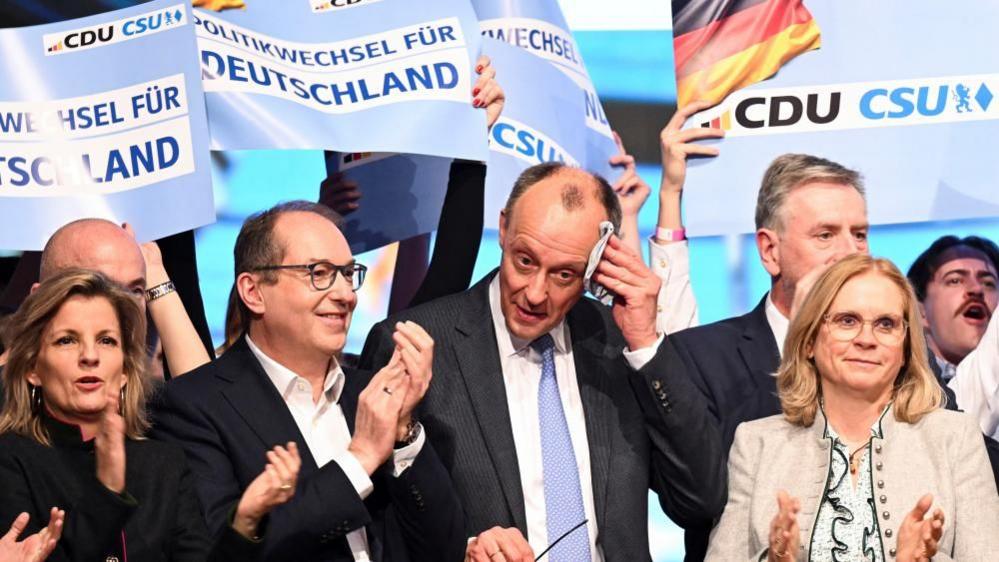
The 2025 German election is heating up as Friedrich Merz, the 69-year-old conservative leader, leads the race to become Germany’s next chancellor. The election campaign has been intense, focusing on the country’s faltering economy, migration issues, and national security concerns.
Merz promises to address these challenges within four years if his Christian Democrats (CDU) win the election. However, he will likely need to form a coalition with another party, possibly Olaf Scholz’s Social Democrats, to govern effectively.
Exit polls indicate that the far-right Alternative for Germany (AfD) is set to become the second largest political force, raising concerns about their influence in parliament. Merkel has made it clear that there will be no alliance with the AfD, signaling a division in the political landscape.
With millions of Germans eligible to vote, the election outcome remains uncertain, with many undecided voters. The results are expected to be revealed as the polls close, providing a crucial glimpse into Germany’s future political direction.
Amidst growing tensions in Europe and globally, Germany’s next government will face challenges on the world stage, from military funding to relations with Russia. The election outcome could have significant implications for the country’s domestic and foreign policies.
As the election unfolds, stay tuned for live updates and analysis on the German election 2025, featuring key players like Friedrich Merz, the AfD, and the future of German politics.
Attribution:
This article was summarized and republished from the original source.
Please check the original article here: https://www.bbc.co.uk/news/articles/cwyj93lz2kxo.